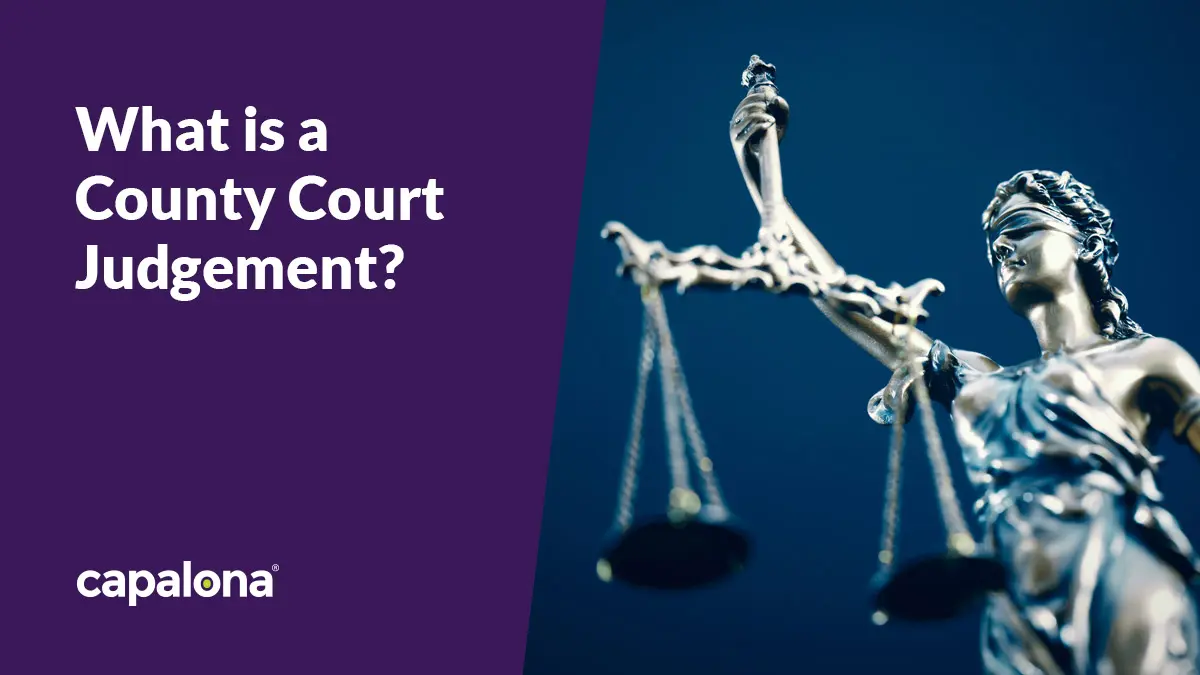Receiving a County Court Judgement (CCJ) can be problematic for many reasons. Whether renewing your mobile phone contract or acquiring finance for your business, it can dramatically affect your financial situation over the following six years.
In this blog, we look at what a CCJ is, what you should and shouldn't do when you receive one, and its impact on your business finances.
CCJ Meaning
A County Court Judgement, or CCJ, is a formal court order that a creditor (someone who lends you money) can use to reclaim a debt owed to them. It can be filed against an individual or a business and is an action taken when the creditor believes that the debt won't be paid back within the originally agreed timeframe or at all.
County Court Judgement Process
Before any court proceedings happen, the creditor must begin by sending the debtor (your business) a letter of claim. This letter outlines everything you need to know about the debt — how much you owe, what the debt is from (i.e. credit card, business loan), and a breakdown of the total amount owed, including interest or charges. The creditor will usually give you 30 days to pay this amount owed.
If you still haven’t paid the debt, the following process will take place:
- They’ll be a court claim. The lender/creditor will issue a court claim, and your business will receive a response pack containing several forms.
- You’ll have 14 days to respond to the claim. When you respond, you can admit to the debt and work out a payment plan, dispute it, or ask for more time.
- If you admit the claim (or fail to respond again). You’ll receive a judgement to pay the amount in instalments or a judgement stating payment must be in full and immediate.
- If you further fail to comply with the judgement, the court can enforce it through bailiffs, deduct it from your wages, or issue a charging order (a way to secure unpaid debt against property).
What will happen if I ignore a CCJ?
If you don't respond within the 30-day time frame stated in the CCJ enforcement letter, you may face serious consequences. These can include having your bank account frozen, visits from bailiffs, or even money taken from your wages until the debt is paid in full. It’s a situation you’ll want to avoid.
What happens if I can't afford to pay my CCJ?
Although receiving a CCJ can be very stressful, try not to panic. You do have a few payment options available to you:
- Pay in full within one month
- Arrange to pay in instalments
- Request to have the judgement "set aside" if you dispute the debt
If you’re struggling to pay your debts and would benefit from impartial business debt advice, you can speak to a debt advisor for free through the Business Debtline. Alternatively, if you’re looking for free legal advice, find out how to get legal support here.

How will a CCJ affect my ability to secure business finance?
A CCJ will lower your credit score, making you a higher risk to lenders. This means certain financial products may be off limits to you, you can't access favourable interest rates, and you’ll generally find it more challenging to find a suitable lender.
How long does a County Court Judgement last?
A county court judgement will remain on your credit report for six years. This will likely play a big part in whether lenders agree to loan you money, which can significantly impact your business growth.
Once the six years have passed, the CCJ will be removed entirely from your credit report.
Can I get my CCJ removed from my credit report?
You can contact the three credit reference agencies (Experian, TransUnion and Equifax) and request that a CCJ be removed from your credit history. But, they’re unlikely to remove it unless:
- You can prove that the outstanding debt was paid in full within one calendar month of the court issuing the judgement.
- You successfully challenged the court and had your CCJ marked as satisfied (settled) and cancelled.
- You can prove that a third party, such as an insurance company, is responsible for the debt that resulted in a CCJ.
County Court Judgement check
If you’re not sure whether you have a CCJ filed against you, there are several ways you can check. Firstly, you can approach one of the three main credit reference agencies: Experian, Equifax or TransUnion and order a free statutory credit report. This will give you a basic overview of your credit history.
Another way to check if there are any CCJs filed against you if by using Trust Online. You can search for CCJs against individuals or businesses or search using a specific case number to get more details. This is not a free service, but to search for a business and obtain information about CCJs in England and Wales, you only pay £6.
What business loans can I get with a CCJ?
Although finance options will be limited, there are still a few options available to you:
- Secured loans - These loans are secured with collateral (i.e., commercial property, vehicles, equipment, etc.), which means the lender can seize the asset if you don’t repay the loan on time. This arrangement poses less risk to the lender.
- Bad credit business loans - These loans are specifically for businesses with bad credit. These lenders are willing to accept applications from companies with all kinds of credit scores, including those with CCJs.
- Invoice finance - The lender secures this type of funding against outstanding client invoices, not your credit history. So, some lenders are willing to overlook CCJs.
- Commercial mortgages - Although your options will be limited, you can still apply for a commercial mortgage with a CCJ. If your CCJ is more than three years old or for a small amount, lenders will be more likely to consider your application.
At Capalona, we help thousands of SMEs find and compare the best business loans from a range of lenders. Use our free self-serve comparison tool to find out which loans you're eligible for.






